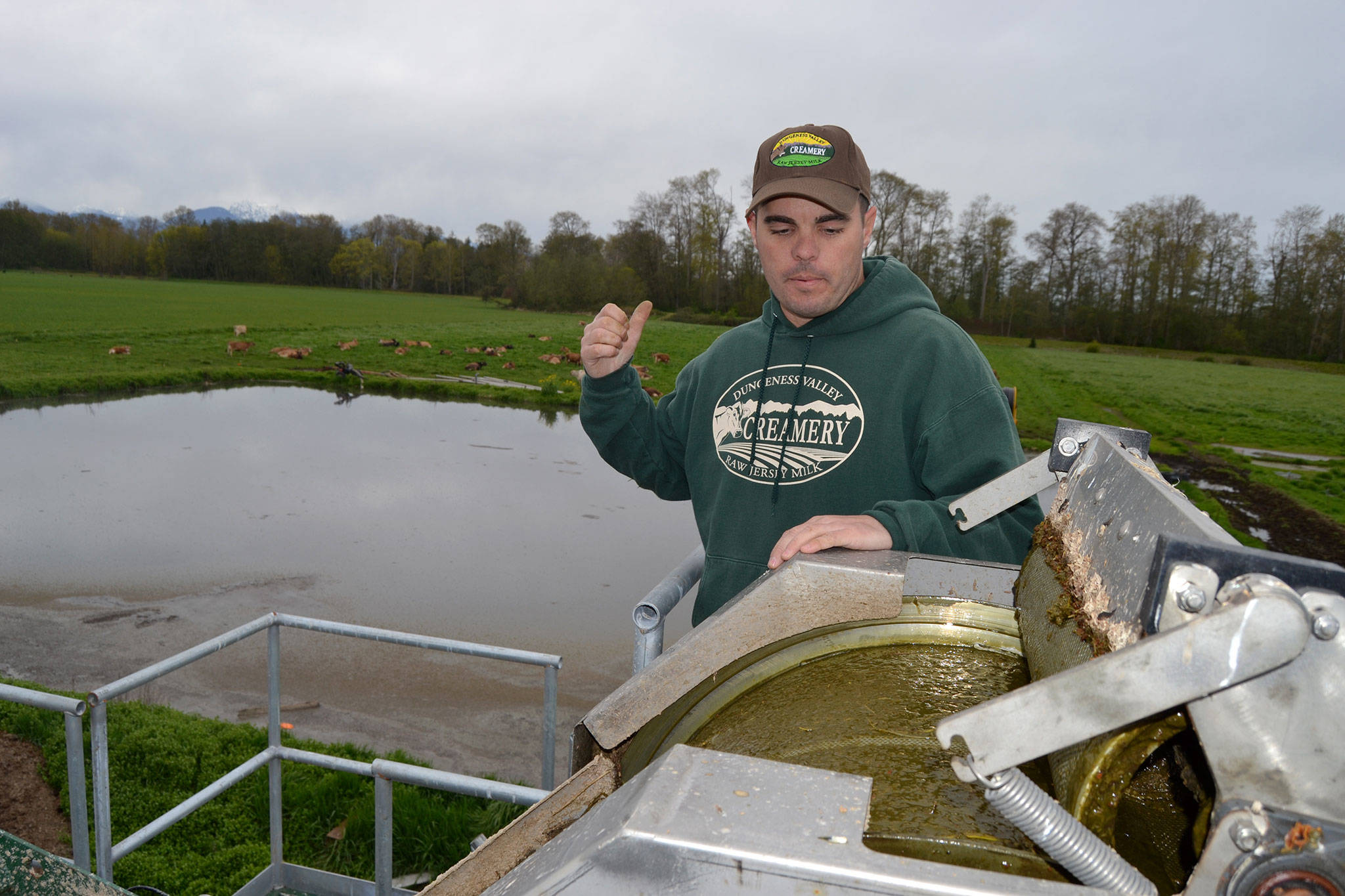With the Dungeness Valley Creamery coming up on its 12th anniversary on June 16, farm owners Ryan and Sarah McCarthey say they continue to look to the future.
Their latest venture looks to help cows live cleaner and happier with a new system that cleans around stalls more frequently.
“In an industry where this year we’ll dip under 40,000 dairies in the nation, we want to find ways to be cleaner while continuing to modernize,” Ryan McCarthey said. “Thankfully, we’re in a niche market that helps us be economically and environmentally sustainable.”
In March, farm crews and contractors finished installing the DTX Separator from Daritech Inc. of Lynden, which schedules and flushes cow alleys, or stalls, six times a day compared to two a day previously.
Formerly, farm hands would have to place the cows in a holding pen for up to 45 minutes twice a day so that stalls could be cleaned so that a staffer could manually switch on a pipeline to flush the stalls. The new system now allows the farm’s 70 cows 1 ½ more hours per day to relax and socialize, Ryan McCarthey said.
“We’re actually seeing milk production going up because of it,” he said.
Dungeness Valley Creamery has seen its demand rise in the past year-and-a-half following the farm receiving a U.S. Department of Agriculture grant to grow their business, and merging with fellow raw milk dairy producers Jackie’s Jerseys of Bellingham.
“The economic climate was demanding we add (the separator system),” McCarthey said, “And because of it we’ve seen some growth and it’s created some jobs.”
Reuse water
Josh McCort, Daritech project manager, said the water recycling system is the smallest they’ve installed across the nation at a farm, but it allows the McCartheys to reuse water.
“The way the stalls are designed it never makes a mess in them,” he said. “All manure goes into the alleyways when the cows stand up and when the alleys are flushed there’s no wastewater.”
Using fresh water would be wasteful, McCarthey said, because of how frequently cows urinate and defecate.
With an automated system, McCarthey said he can check on the program any time from his cell phone and set a flushing schedule using an app. Each system flush runs about 90 seconds bringing waste to one location for sorting and cleaning purposes. With the more frequent cleanings, McCarthey said the stalls smell less pungent, too.
McCort said the machine separates out about 4 yards of manure solids per day that the farm sells for organic farming.
Liquid waste is processed into a 12,000 gallon tank of liquid manure. McCarthey said the fresher liquid is on top and always used first when flushing whereas liquids with more sediment are on the bottom and any overflow goes into the manure lagoon.
Look to the future
The separator is the first of two phases at the farm for handling waste, McCarthey said.
Their next goal is to install an above ground metal tank for liquid manure to replace the manure lagoon.
McCarthey said the Clallam County Conservation District is helping him seek a grant to purchase the new system, and he hopes to have it in place in three-five years.
Grants are available for projects for farmers if they’re willing to wait, he said, but for the separator, he opted to move ahead and spend about $100,000 total on the upgrades because he was able to buy the system used.
“We want to be ahead of the cleanliness and prevent any possible issues going forward,” he said.
Whenever the farm has sought modernization, McCarthey said public feedback has been positive.
For more information on the Dungeness Valley Creamery, 1915 Towne Road, call 683-0716 or visit www.facebook.com/dungenessvalleycreamery.



